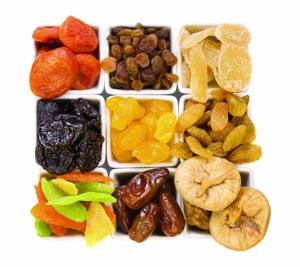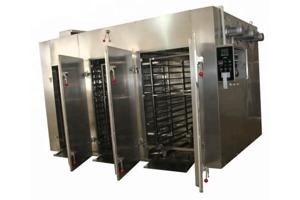
Content Menu
● Understanding Heat Pump Dryers
● Advantages of Heat Pump Dryers
● Comparative Analysis
● Applications in Food Drying Machines
● Conclusion
● Frequently Asked Questions
>> 1. What is the main difference between a heat pump dryer and a condenser dryer?
>> 2. Are heat pump dryers more expensive than condenser dryers?
>> 3. Can I install a heat pump dryer anywhere?
>> 4. How do heat pump dryers protect my clothes?
>> 5. What are the benefits of using a heat pump dryer for food drying?
In the realm of laundry appliances, the choice between a heat pump dryer and a condenser dryer can significantly impact energy consumption, drying efficiency, and garment care. As the demand for efficient and eco-friendly appliances rises, understanding the advantages of heat pump dryers becomes essential for consumers looking to make informed decisions. This article delves into the benefits of heat pump dryers compared to condenser dryers, particularly in the context of food drying machines.

Understanding Heat Pump Dryers
Heat pump dryers operate using a closed-loop system that utilizes a refrigerant to absorb moisture from clothes. The process involves:
- Heating Air: The dryer heats air using a heat pump, which is then circulated through the drum containing wet clothes.
- Moisture Removal: The warm air absorbs moisture from the clothes and is then passed through an evaporator where the moisture is condensed and collected.
- Recycling Air: The now-dry air is reheated and cycled back into the drum, allowing for continuous drying without significant energy loss.
This method not only conserves energy but also allows for lower drying temperatures, making it gentler on fabrics.
Advantages of Heat Pump Dryers
1. Energy Efficiency: Heat pump dryers are renowned for their energy efficiency. They typically consume about half the energy of traditional condenser dryers. This efficiency translates into lower electricity bills over time, making them a cost-effective choice for long-term use.
2. Gentler on Fabrics: The lower operating temperatures of heat pump dryers help preserve the quality of clothing. High temperatures can lead to shrinkage, fading, and wear over time. By using lower heat settings, garments maintain their shape and color longer.
3. Environmental Impact: With rising awareness about environmental sustainability, heat pump dryers stand out as an eco-friendly option. Their reduced energy consumption means less reliance on fossil fuels and a smaller carbon footprint.
4. Versatile Placement Options: Like condenser dryers, heat pump dryers do not require external venting, allowing for flexible installation in various locations within a home or facility. This convenience is particularly beneficial in urban settings where venting options may be limited.
5. Longer Lifespan: Due to their efficient operation and lower temperatures, heat pump dryers often experience less wear and tear compared to condenser models. This durability can lead to longer appliance lifespans and fewer maintenance issues.
6. Cost Savings Over Time: Although heat pump dryers may have a higher upfront cost than condenser dryers, the savings in energy bills can offset this initial investment within a few years.
7. Advanced Features: Many heat pump dryers come equipped with smart technology that optimizes drying cycles based on load size and fabric type. This feature not only enhances drying efficiency but also protects delicate items from damage.
8. Reduced Noise Levels: Heat pump dryers tend to operate more quietly than traditional models due to their design and operating mechanisms. This makes them an excellent choice for homes where noise levels are a concern.
9. Improved Humidity Control: These dryers often include advanced humidity sensors that monitor moisture levels in real-time, ensuring that clothes are dried optimally without over-drying or under-drying.
10. Multi-functionality: Some heat pump dryers come with additional functions such as steam cycles or refresh settings that help remove wrinkles and odors without needing a full wash cycle.
Comparative Analysis
To better understand how heat pump dryers stack up against condenser dryers, let's examine their key differences:
| Feature | Heat Pump Dryer | Condenser Dryer |
| Energy Efficiency | Highly efficient | Less efficient |
| Operating Temperature | Lower (50°C max) | Higher (70-75°C) |
| Drying Speed | Slower (longer cycles) | Faster (shorter cycles) |
| Fabric Care | Gentler on clothes | Can cause wear due to high heat |
| Environmental Impact | Lower carbon footprint | Higher carbon footprint |
| Installation Flexibility | No vent required | No vent required |
This table highlights that while both types of dryers have their merits, heat pump dryers provide significant advantages in terms of energy efficiency and fabric care.
Applications in Food Drying Machines
As a manufacturer of food drying machines, it's crucial to consider how these principles apply to your products. Heat pump technology can be particularly beneficial in food drying applications:
- Preservation of Nutrients: By utilizing lower temperatures, heat pump food dryers can preserve more nutrients in dried foods compared to traditional methods that use higher temperatures. This is especially important for health-conscious consumers who prioritize nutrient retention in their diets.
- Energy Savings: Given the high volume of energy typically consumed by food drying processes, incorporating heat pump technology can lead to substantial operational cost reductions for commercial food producers. This makes it an attractive option for businesses looking to enhance profitability while maintaining quality.
- Versatility: Just as with laundry applications, food drying machines using heat pump technology can be installed in various locations without needing extensive ventilation systems. This flexibility allows producers to optimize their workspace layout according to production needs.
- Quality Control: Advanced sensors can monitor humidity levels within the drying chamber, ensuring optimal conditions for different types of food products. This precision helps prevent over-drying or under-drying, resulting in better product quality and consistency.
- Reduced Operating Costs: By minimizing energy consumption during the drying process, manufacturers can significantly reduce their overall operating costs while also appealing to environmentally conscious consumers who prefer sustainable practices.
- Enhanced Safety Features: Many modern heat pump food drying machines incorporate safety features such as automatic shut-off mechanisms when desired humidity levels are reached or if overheating occurs. These features contribute to safer operations in commercial kitchens or food production facilities.
Conclusion
Heat pump dryers offer numerous advantages over condenser dryers, particularly in terms of energy efficiency, garment care, and environmental impact. For manufacturers producing food drying machines, integrating heat pump technology can enhance product offerings by providing energy-efficient solutions that maintain food quality while reducing operational costs.
As consumers become more conscious of their environmental footprint and seek appliances that save money while caring for their belongings or products, heat pump technology stands out as a forward-thinking choice in both laundry and food drying applications.

Frequently Asked Questions
1. What is the main difference between a heat pump dryer and a condenser dryer?
- The main difference lies in how they operate; heat pump dryers recycle hot air at lower temperatures, while condenser dryers use high temperatures to dry clothes quickly.
2. Are heat pump dryers more expensive than condenser dryers?
- Yes, they typically have a higher initial purchase price but offer significant savings on energy bills over time.
3. Can I install a heat pump dryer anywhere?
- Yes, since they do not require external venting, they can be installed in various locations within your home or facility.
4. How do heat pump dryers protect my clothes?
- They operate at lower temperatures which reduces the risk of shrinking or damaging fabrics compared to traditional high-heat methods.
5. What are the benefits of using a heat pump dryer for food drying?
- They preserve nutrients better due to lower drying temperatures and are more energy-efficient than traditional food drying methods.
By understanding these advantages and applications of heat pump technology in both laundry and food processing contexts, consumers and manufacturers alike can make informed choices that benefit both their finances and the environment.











